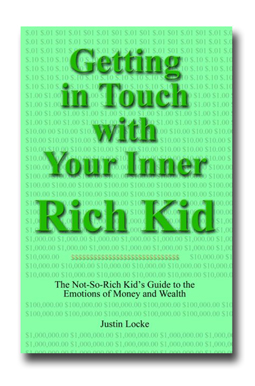After having written my latest book, “Getting in Touch With Your Inner Rich Kid,” I have been discussing the issue of being richer than one is right now.
There is a common presumption that everyone wants to “be rich,” and everyone wants to “have more money,” but I am starting to wonder if this is truly the case. For one thing, if everyone wanted more money, wouldn’t we all be clamoring to be investment bankers? Many people are, but not everyone.
Wealth is all about having what you want, and for most people, wealth is a sense of belonging and community. To have more cash on hand than all your friends and colleagues (and by extension, doing things that result in getting more cash) very often serves to strain and even sever one’s current social connections. Further, as you change social groups (as you go from health club to country club), there is then the issue of, will the new group of wealthier friends accept you?
Writing this book has made me terribly aware of the power of “class” in America, and how various classes . . . mostly those in the lower middle part of the spectrum . . . work very hard to promote and maintain membership in their particular layer of society. I am seeing few people who have any real ambition to move up. This is not a criticism; in many ways, it’s actually a good thing. But at the same time, if one is going without fulfillment in life as a trade-off for a sense of getting one’s basic social needs met, that seems a high price to pay, and perhaps it is unnecessary.
What does it mean to rich?
© Justin Locke

